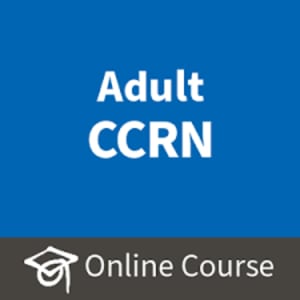Proven Study Techniques for AACN CCRN Adult Certification Exam Success
Saturday, Feb 22, 2025 12:30a -
Monday, Feb 24, 2025 12:30a
Where:
Online
Surrounding areas
Boston, CO 02110
Admission:
$1
Categories:
Business & Professional, Classes, Tech
Event website:
https://www.pass4success.com/aacn/exam/ccrn-adult
The AACN is a leading organization dedicated to advancing nursing practice and excellence in critical care. It provides certification, education, and resources to empower nurses and improve patient outcomes.
The CCRN Adult exam validates the knowledge and expertise of nurses providing direct care to acutely and critically ill adult patients. The CCRN Adult exam assesses clinical expertise in cardiovascular, respiratory, neurological, and multi-system conditions, along with ethical practice, patient advocacy, and collaboration. The exam ensures proficiency in evidence-based critical care and professional responsibilities.
Study Strategies for CCRN Adult Exam Success
Studying for the CCRN Adult exam doesn’t have to be stressful. Think of it as preparing for real-life patient care, not just a test. Instead of cramming, focus on understanding. Ask yourself, “How would I handle this in the ICU?” This makes learning more practical and less overwhelming. Pass4Success is a great tool for AACN CCRN Adult Certification exam preparation.Take mock exams to build confidence and track progress. Don’t just check right or wrong answers—understand why. With the right strategy and practice, passing this exam becomes much easier.
Here are some demo questions of AACN CCRN-Adult Exam:
1. A patient with acute respiratory distress syndrome (ARDS) is on mechanical ventilation. Which ventilator setting is most important to prevent ventilator-induced lung injury?
A) High tidal volume (10-12 mL/kg)
B) Low tidal volume (4-6 mL/kg)
C) Increased FiO₂ at 100% for extended periods
D) Increased respiratory rate to compensate for acidosis
Answer: B)
2. A patient in septic shock remains hypotensive despite fluid resuscitation. Which medication should be administered next?
A) Dopamine
B) Epinephrine
C) Norepinephrine
D) Atropine
Answer: C)
3. A patient with heart failure presents with dyspnea, crackles, and an S3 heart sound. What initial treatment is most appropriate?
A) IV fluids and beta-blockers
B) Loop diuretics and nitroglycerin
C) Digoxin and IV fluids
D) Atropine and normal saline bolus
Answer: B)








